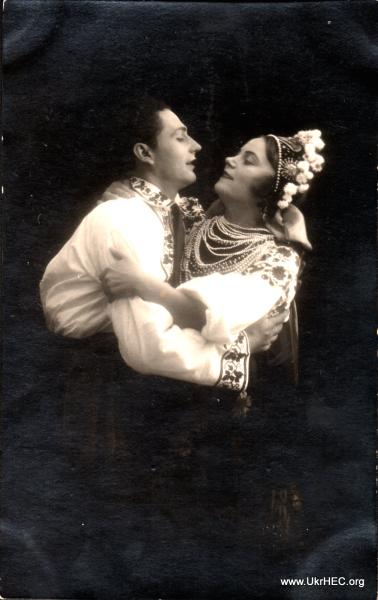
Early years
Liudmyla Targoni Serdiuk was born May 6, 1899 in the village of Nimovychi, Volyn' region of Ukraine to Antin and Mokryna Targoni. In 1924 she began acting in various touring theater companies in what was then the Second Polish Republic.
Vasyl’ Serdiuk was born in 1900. He fought in the Ukrainian War of Independence, after which he became an actor and theater director in what is now western Ukraine (then Poland).
Vasyl’ and Liudmyla married in 1928.
Inter-war L'viv
Western Ukraine was part of the inter-war Polish Republic, and there was considerable tension between the government's efforts at Polonization and the aspirations of the Ukrainian population. Nonetheless, there was much Ukrainian cultural activity in 1930s L'viv, and theater was an important part of that world.
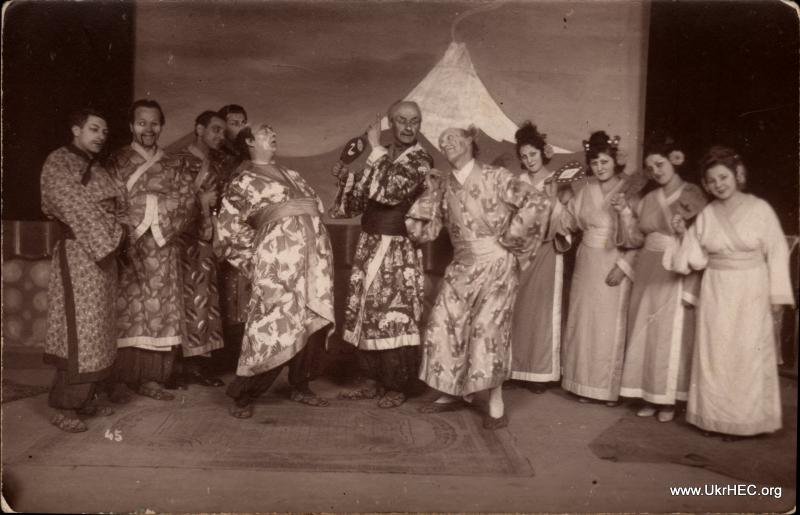
The cultural life of L'viv was cosmopolitan and Western-looking, and many theatrical productions were translations of Western European works, including such surprises as Gilbert and Sullivan's "The Mikado". The actor in the center is Mykola Bentsal, who would go on to become the director of the Tobilevych Theater, one of the major Ukrainian theater companies in L'viv during the inter-war period.
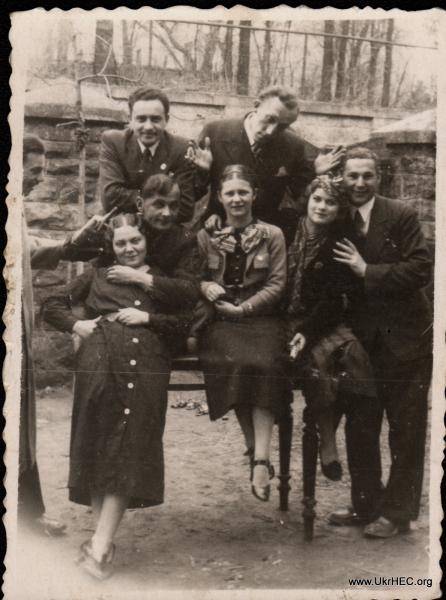
The other major force in the L'viv theatrical world was the experimental Zahrava Theater, of which the Serdiuk's were members. It was led by director Volodymyr Blavats'kyi and was heavily influenced by Les' Kurbas and the Berezil' Theater.
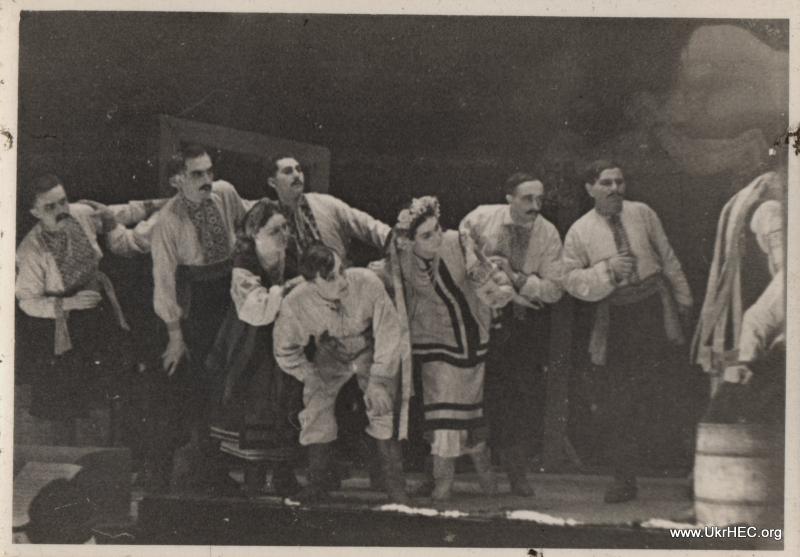
The Serdiuk Papers have photographs of several productions by this company, including "Oi ne khody Hryts'iu", "Holhota", and "Kamo Hriadeshy".
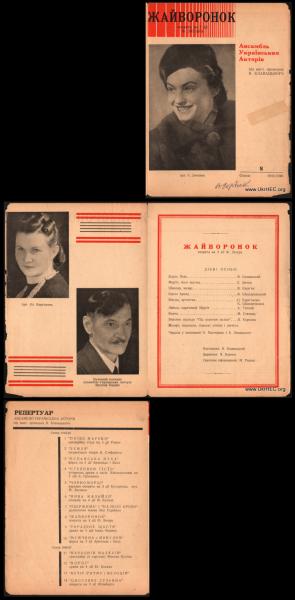
War and Displacement
The takeover of Western Ukraine by the Soviets in 1939 as part of the Molotov-Ribbentrop Pact completely changed the cultural life of L'viv. For example, the Tobilevych and the Zahrava theaters were forcibly united to form the Lesia Ukrainka Theater. However, residents of the city would soon have much more to worry about than that.
After surviving the Nazi occupation, the Serdiuks joined thousands of others fleeing the advancing Soviet army, and ended up in DP camps.
Notwithstanding the deprivations of the camps, Volodymyr Blavats'kyi (the former director of the Zahrava Theater) formed a new theater company (the "Ensemble of Ukrainian Actors") that produced a remarkably ambitious series of plays and musical theater works. These included translations of Western European works, such as "Where the Lark Sings" by Franz Lehár, "The Ghost Train" by Arnold Ridley, and farces by the popular German comedic playwrights Arnold and Bach. The majority of the productions, however, were of Ukrainian works by Franko, Lesia Ukrainka, Kulish, and Hrinchenko.
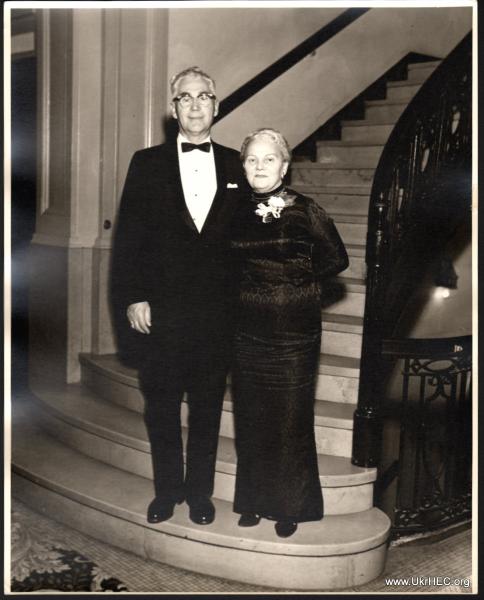
Life in the United States
The Serdiuks resettled in the US, and made their home in the Trenton, NJ area. They participated in the emigre theater world, maintained contacts with their actor and director colleagues, and were active in Ukrainian theater publications and associations such as the "Holos Aktora" ("The Voice of the Actor") and "Obiednannia Mysttsiv Ukrains'koi Stseny" ("Association of Ukrainian Theatre Artists"). Their archival material contains correspondence and other documents related to these activities.
They were also very involved with the Ukrainian Orthodox parish of St. George in Trenton/Yardville NJ, and their collection contains hundreds of photographs of the activities of the parish.
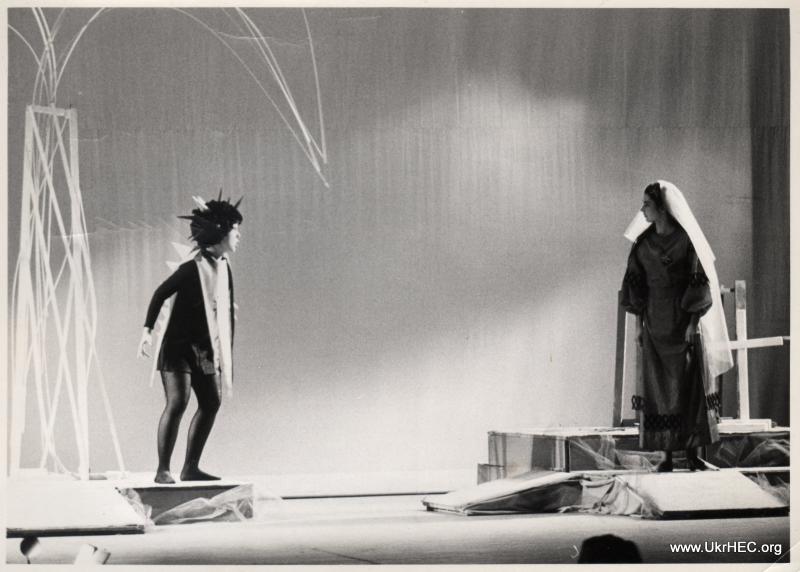
They also continued to act, direct, and support Ukrainian-American theater. They participated in semi-professional and amature productions in the Trenton and Philadephia areas, including the series "Teatr u Piatnytsiu" ("Theater on Fridays"). They were also supportive of Ukrainian youth theater in the US. Liudmyla died in 1984, and Vasyl' died in 1993.

